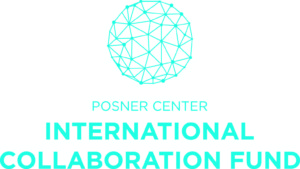Announcing the 2018 Awards
The Posner Center’s International Collaboration Fund is an innovative grantmaking program, founded on the idea that strategic collaboration can create transformative change in development. We are pleased to announce our 2018 grant awards, each of which leverages partnership within the Posner Center network for greater impact in communities worldwide. In addition, each project promises to contribute to the Posner community and the broader sector through the creation of a product, tool, or resource for broader use.
We are awarding four grants, ranging from $10,000 to $20,000, for a total of $50,000 in awards.
The International Collaboration Fund (ICF) is made possible by our generous donors. 2018 donors include: CoBank, Beyond Our Borders, Green Fund, Harvey Family Foundation, and the JHJ Posner Family Fund. Thank you for your support of collaboration for impact!
The Projects
Well Siting Meter
Amount: $10,000
Location: Cameroon and United States
Partners: Global Hope Network, Mike MacCarthy, JustDesign LLC, and H2Optimal
Conventional instruments used to identify the best location for a well cost between $6,000 and $40,000 and require a highly-skilled operator, essentially making successful well-drilling inaccessible for local NGOs. This partnership between engineers, makers, and software developers proposes to prototype and test a low-cost, open-source well siting meter. The meter will help provide an accurate picture of the geophysical environment in order to maximize successful well installation. Detailed instructions for developing the meter and building appropriate casing for the meter will be widely distributed for broader use.
Accelerator Bootcamp for iDE’s Social Enterprises
Amount: $20,000
Location: Global
Partners: iDE and GAN
iDE is founded upon the idea that business has the power to solve poverty. GAN is a leader in supporting startups build successful businesses. Together, they plan to run an accelerator bootcamp to launch iDE’s existing social enterprises to new heights. They will run a competitive selection process among iDE’s social enterprises, design, and implement a one-day accelerator bootcamp to be held in April 2018. Selected social enterprises will emerge with a road map for business success, and will play an integral part of iDE’s strategic goal to reach 20 million more people.
Stronger Together: Developing Authentic Girls’ Empowerment Across Borders
Amount: $10,000
Location: Denver, Colorado and Panajachel, Guatemala
Partners: Starfish and Envoys
Across the Posner Center community and the broader development sector, trips to visit NGO offices in other countries are common practice, intended to generate awareness, connection, and financial support. Despite an increased emphasis on conscious travel, little rigorous work has been done to explore the learning of and benefits to all individuals, travelers and hosts alike. Starfish, an NGO based in Guatemala, is partnering with Envoys, a leader in global education, to plan, execute, and evaluate a trip engaging students from Denver’s Girls Athletic Leadership School (GALS) with Starfish’s Girl Pioneers. They will research, develop, and pilot a tool for evaluating the benefit of travel for all participants and plan to share their findings with the Posner Center community and beyond.
Kupanda Girls’ Junior Community Health Education Program
Amount: $10,000
Location: Misungwi District, Tanzania
Partners: Africa School Assistance Project and Maji Safi Group
In 2015, Tanzania made lower secondary school education free. Despite this change, graduation rates, particularly for girls, remain abysmally low. In response, the Africa School Assistance Project (ASAP) started the Kupanda Project for Girls, a holistic program aimed at addressing the various barriers girls face in receiving an education. The Maji Safi Group will collaborate with ASAP to train girls from the Kupanda Project to become community health educators in school water, sanitation, and hygiene (SWASH) and in menstrual hygiene management (MHM). This train-the-trainer model will strengthen the leadership skills of the Kupanda Project students, expand SWASH and MHM knowledge of primary-aged students, and create broader community awareness and skills for improved health.

